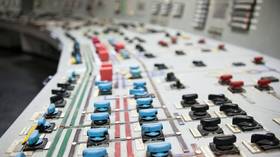China delays nuclear plan over sabotage fears – media

Chinese officials have halted plans to build a floating nuclear reactor over concerns that it could be attacked, the South China Morning Post reported on Wednesday, citing engineers involved in the project.
According to the outlet, regulators withheld final approval in respect of China’s first floating nuclear power plant, just as construction was about to begin after 10 years of development. The plant was designed to generate electricity for remote islands and critical marine infrastructure.
On May 25, a team of engineers at the National Energy Offshore Nuclear Power Platform Technology Research Center, which oversaw research and development on the project, published a paper stating that “safety and feasibility are still the main concerns of the regulatory authorities.”
The team, led by senior engineer Wang Donghui, said they were surprised by the decision to postpone the project, considering that floating nuclear power reactors are generally regarded as safer than those on land.
“The ocean acts as a natural heat sink, which helps cool the reactor core and makes it inherently safer,” the team said, adding that such reactors are also less vulnerable to earthquakes.
However, according to Wang’s team, Chinese regulators are reportedly concerned that a nuclear reactor at sea could not be sufficiently protected and could come under attack, leading to serious environmental and geopolitical consequences.
Authorities are allegedly concerned that an enemy submarine, for example, could plant explosives on the hull of the reactor and damage its cooling systems, or UAVs could target the plant with bombs or projectiles.
Such fears reportedly escalated following last year’s bombing of Russia’s Nord Stream pipelines in the Baltic Sea, a Beijing-based researcher, who is not directly involved in the project, told the SCMP. He noted that, while no country has taken responsibility for the attack, “there is a popular belief that the United States is behind this.”
“Attacking the core infrastructure of a permanent member of the UN Security Council was regarded as taboo before. Not any more,” he said, adding that there is a growing concern in Beijing that Washington would attack Chinese infrastructure in the South China Sea. Chinese officials are reportedly also concerned that if such an attack took place, it would be difficult to reliably identify the culprits, making retaliation more challenging.
In response to these concerns, Wang’s team has suggested building a dock-based floating power plant, which could be situated near the Chinese mainland.














